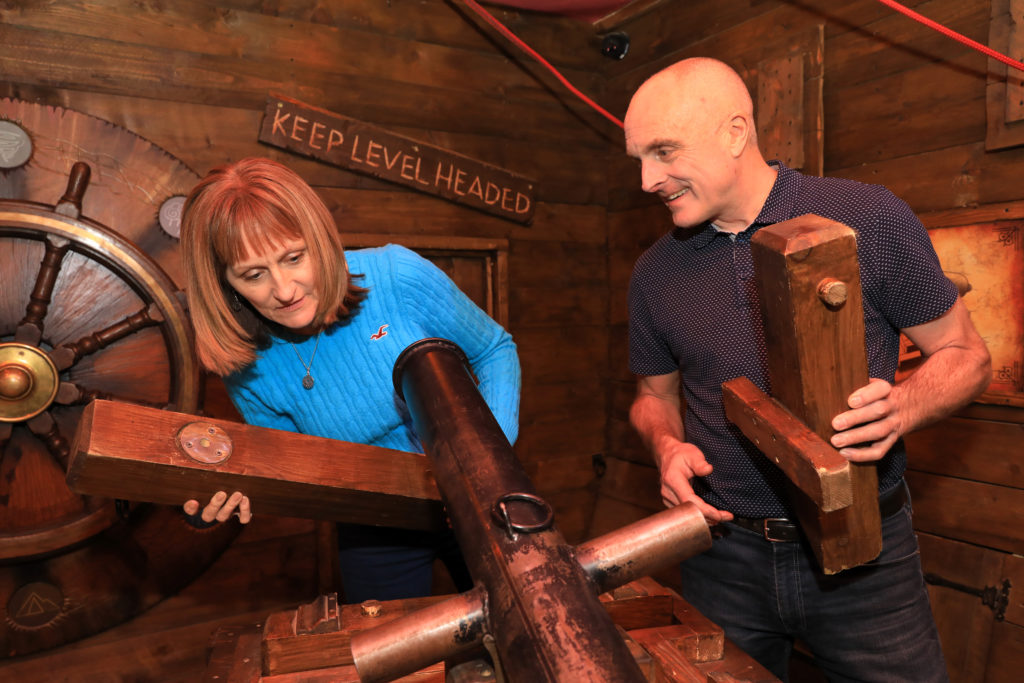Escape room psychology
by Ailsa Harvey · 03/01/2021
How can unlocking the power of your mind help unlock these puzzle rooms?

Your time starts… now. Trapped in a locked room with just 60 minutes ticking down on the clock, where do you begin in the search for freedom? It might not be a life or death situation, but the unfamiliar surroundings and growing intensity could convince you otherwise. It is this realistic urgency that gets you and your team springing into action in a problem-solving frenzy.
This is an escape room – a live-action game that puts your actions in charge of the outcome. The clues are all around you. You just need to know where to look. Taking on the room puts your brain to the test as you battle against the time pressure, confinement and puzzles of ranging complexity. A good team will be able to work well together, understanding each other’s strengths and weaknesses and using them to their advantage. These unique missions give players the opportunity to be the heroes of the event. Everybody goes into these rooms hopeful that their team will be leaving triumphant, but in reality many succumb to the psychological challenges that come with the desperation to escape and beat the challenge.
Being locked in a room may seem like an unusual recreational activity choice, so what is it about this experience that gives us such a thrill? Forced to think quickly, teams usually keep bouncing ideas off each other as they pace around the limited space. This movement in the body and brain has been shown to create a similar effect to going for a walk, as it releases the happy hormone, dopamine. Combined with the adrenaline released during an intense race against time, the energy can be contagious. As it passes through the team, the whole group’s mood can be lifted, even in those who fail.
Clues don’t always rely on a sharp eye. With thousands of escape rooms multiplying around the world, escape room managers are finding new ways to engage players. Many involve a range of sensory clues, stimulation that helps to awaken the body and keep different pathways in the brain active. Above all, escape rooms provide an area to get to know your friends or coworkers better. You may even be playing along with strangers. Finding out how other people’s brains work, learning from each other and working as a team to achieve a common goal can give people a sense of purpose, build relationships and hopefully leave people walking away filled with pride and accomplishment.
The science of escape

The hard-easy effect
With the pressure of escape, your mind may work to overcomplicate the puzzles. Your team might miss the obvious answers by looking for something more abstract.
Forward planning
We often think into the future, planning the next steps ahead. In these rooms events can quickly steer away from what we thought we were working towards. The brain is forced to act quick to modify planned behaviour.
Thinking outside the box
Getting the job done is easier to do when you know what you’re doing. The challenge of escape rooms is accessing new areas of the brain. By encouraging the creative problem-solving aspects of our minds, players are not just finding the answers, but discovering what they are answering.
Stressing out
The brain’s stress hormone, cortisol, can be released in these high-intensity situations. Affecting performance, this stress is not ideal for problem solving and can lead to impulse actions and poor memory.
Availability heuristic
Time is of the essence in escape rooms. Because you are required to think of solutions quickly, the brain may take a mental shortcut. In a strategy called availability heuristic, your brain chooses information that you can think of quickly. Escape rooms have undertaken much planning to present new challenges, and this potential solution will more often than not be the answer.
Survival mode
Some escape rooms go to greater lengths to immerse you in the story than others. In the more believable examples, you can begin to convince yourself of the need to escape. When the body is flooded with adrenaline, it can focus the brain and help it perform quicker.
Selective perception
You’ve got an inkling of where the clues are taking you and are determined to find other clues that follow the same path. This is called selective perception and might cause you to overlook other vital and unexpected clues.
Information storage
While clues and answers are dispersed around the room, they are likely to come together in the end. In order to solve the steps, players must keep each finding in the back of their mind. You never know when links between them will need to be made.
For more science and technology articles, pick up the latest copy of How It Works from all good retailers or from our website now. If you have a tablet or smartphone, you can also download the digital version onto your iOS or Android device. To make sure you never miss an issue of How It Works magazine, subscribe today!




